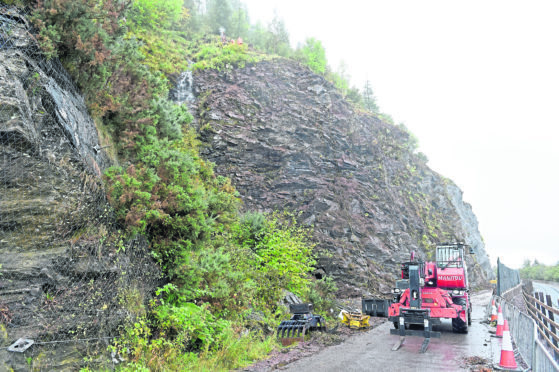Network Rail engineers have made changes to signalling systems at Stromeferry which will allow road users increased access over the railway.
A temporary, new signalling system went in to operation at the weekend giving cars more time to cross the line while still maintaining safety for the railway.
The system has been put in place at short-notice to help ease traffic congestion while Highland Council carries out vital works on the rockface above the A890, which has been the subject of landslips.
Network Rail cannot suspend train services on any railway, but the new system will help to balance the needs of rail users with that of the wider community.
Due to the length of the signalling section, which runs from Kyle of Lochalsh to Strathcarron, there had been a considerable period of time between services when the railway could not provide permission for vehicles to access the road over rail diversion.
To reduce that waiting time, Network Rail has installed temporary stop boards and an automatic warning system for trains approaching Stromeferry which will allow services to be brought to a halt before reaching the road diversion.
Simon Constable, head of route safety for Network Rail Scotland, said: “We have been working closely with Highland Council and our industry partners to find a solution which maintains safety on the railway while improving waiting times for motorists.
“We are pleased to have been able to put these new arrangements in place which will allow train operators to keep using the line, while also increasing access across our infrastructure.
“We have essentially turned a section of the line into a temporary level crossing, installing new equipment and deploying additional staff, to help mitigate the impact of the road closure.”
Garry Smith, principal engineer with the Highland Council, said: “The changes to the signalling system established by Network Rail will greatly reduce the traffic queues through the road works.
“The changes will allow far more time for the convoys to operate and closure times should be reduced to around 20 minutes. The Highland Council appreciate the work by Network Rail to introduce this innovative solution.”
